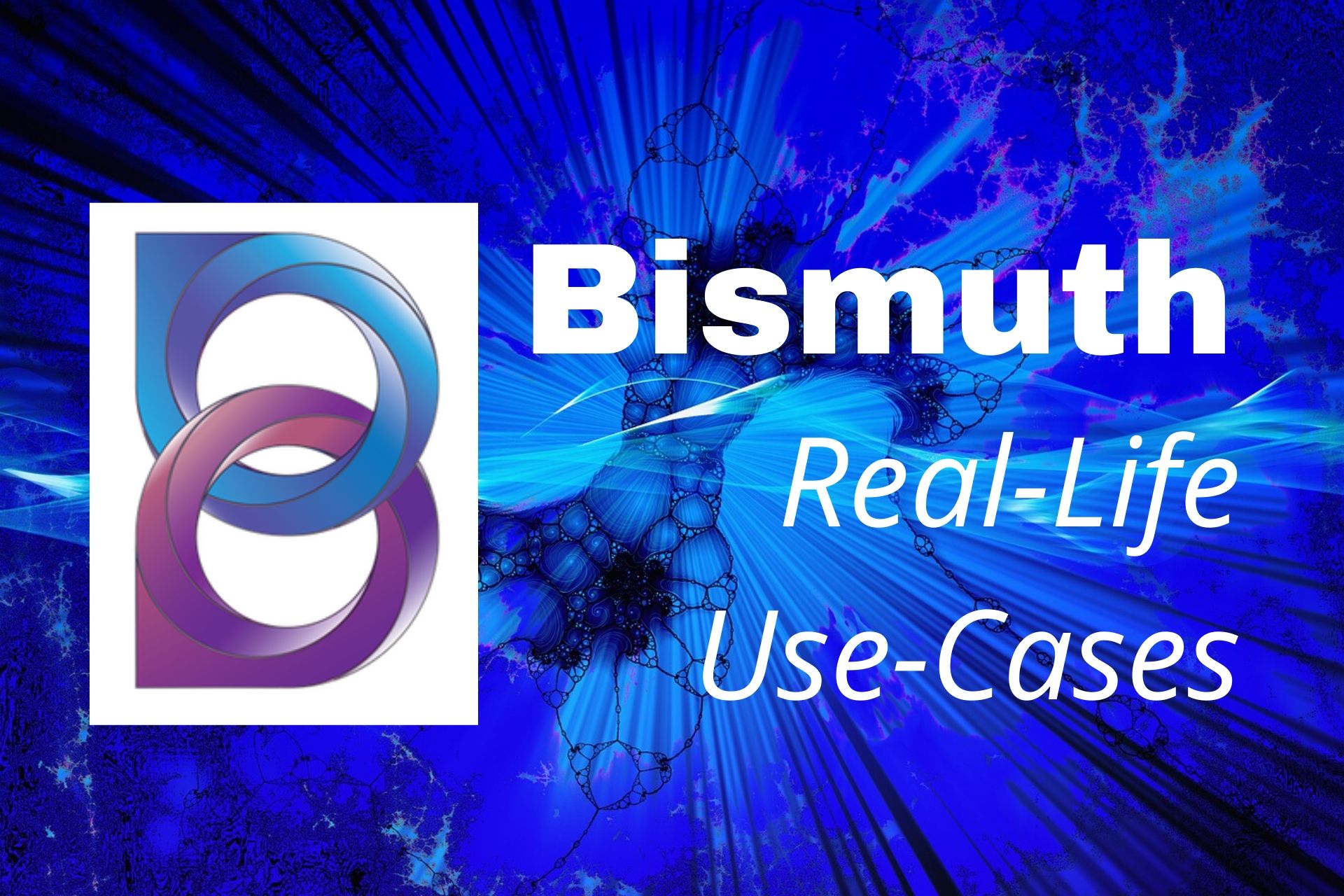Bismuth Blockchain: The Ideal Platform For Distributed Condition Monitoring of EV Batteries And Other Real-Life Use-Cases

The importance of blockchain applications in the enterprise world has been growing faster than ever before. Looking at the current nature of businesses where everything is data-driven, blockchain serves as a perfect use-case for sharing decentralized data.
Today, businesses are increasingly working towards systems that rely on real-time data inputs which can help the users to make informed data-driven decisions. The Bismuth blockchain is one such platform that caters to the requirements of modern businesses.
The Bismuth blockchain system can play a key role in the electric-vehicle industry that employs sophisticated battery systems. Besides, Bismuth can also help in optimizing your electric-vehicle or Tesla performance by providing users with crucial data inputs and timely reminders of your battery information.
Doesn’t this sound too good to be true? Well, let us show you how Bismuth actually does it!
Bismuth Technology – Providing Distributed Condition Monitoring for EV Batteries Leveraging the Power of Blockchain
Gone are the days where we used to rely on calendar-based systems like the yearly servicing of cars or oil change every six months. As businesses continue to evolve, we need more advanced solutions to address customer needs.
Condition monitoring (CM) or condition-based monitoring (CBM) is in fact a more and advanced way to approach issues. From the word itself, we can clearly make out that condition monitoring (CM) is the process of monitoring your car’s health based on some quantified parameters.
With the automobile industry making a massive shift towards the next-generation electric vehicles, and Tesla currently leading the show, the demand for improvements in battery technology has grown.
Currently, upon purchasing a new Tesla, the company promises a battery life of nearly 8 years. However, some experts say that users can extend their battery life if they do some optimized usage and maintain the health of their vehicle battery.
But for an average user to do it, he/she must have data at hand using which they can make informed decisions to expand their Tesla battery performance. Besides, there can be umpteen number of other reasons contributing to any kind of failure. But again, if the user has the right data, he/she can approach the solution in the right direction. Thus, it becomes essential to monitor the battery condition in real-time.
Currently, several private organizations use traditional tools to secure and store data. But then, you need to trust these centralized organizations for protecting your information.
Also, when it comes to the battery of an electric vehicle, it just doesn’t operate in isolation but rather is a part of the entire machinery. Thus, when it comes to operating a scalable data for the entire machinery, centralized organizations need to have proper data-sharing mechanisms in place.
This is where public blockchain networks like Bismuth play a critical role in distributed condition monitoring. The Bismuth blockchain platform offers two fields of a transaction structure called “operation” and “datafield”.
These two fields allow building new meta protocols atop Bismuth’s core blockchain software. These meta protocols play a crucial role in providing solutions for decentralized condition monitoring.
Why Do You Need Bismuth
Currently, the Tesla screen on the dashboard offers all details to view and inspect some of the battery parameters. However, it doesn’t store the history of the battery or its lifetime records.
Although Tesla has an (unofficial) API for third-party services to log data of the owner’s cars, not all are comfortable using it. The reason is using this API required the owner to give their Tesla login credentials or API tokens. Hence, the owner’s aren’t comfortable considering that the third-party owners can take control of your car and not just read data.
Moreover, there can be other fears of losing your vehicle data forever. Even if you have the data backup, you would still need a user interface to display and analyze data. Considering all these factors into play, public blockchain solutions like Bismuth play a crucial role as the offer decentralized data monitoring, sharing and storage.
Thus, public blockchain networks like Bismuth can be an ideal use-case for problems where:
- Multiple participants need to submit and update data
- The participants need not necessarily know each other and work about trust
- The data does not need to be private
- The database is resistant to attacks and censorship.
Particularly for the Tesla EVs, Bismuth has implemented all the above features using its open-source public blockchain. It uses a Tesla plug-in called “crystal” in Bismuth technology together with its open-source TornadoWallet.
There are a ton of features implemented by Bismuth that you would like to know. To make things easy, Bismuth has also implemented a public website that works well with Tesla in-car browser dubbed Chromium.
